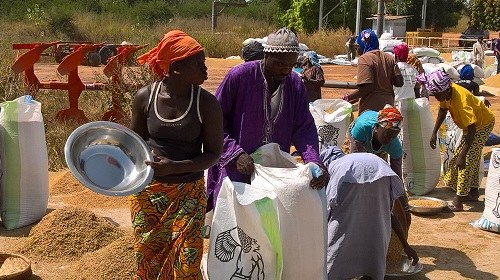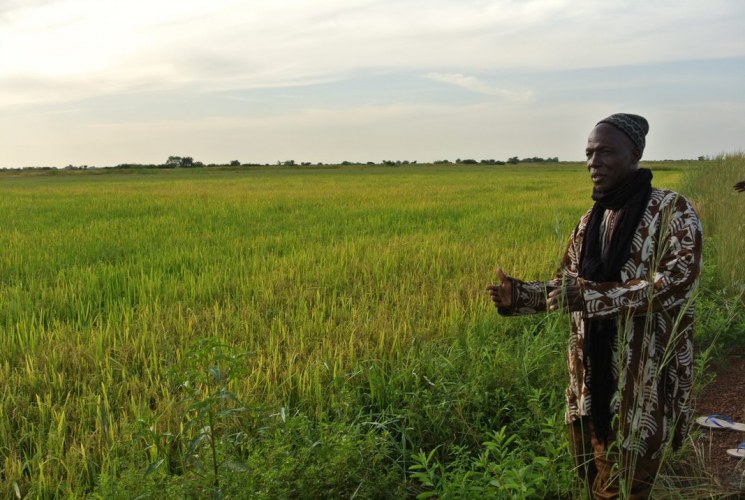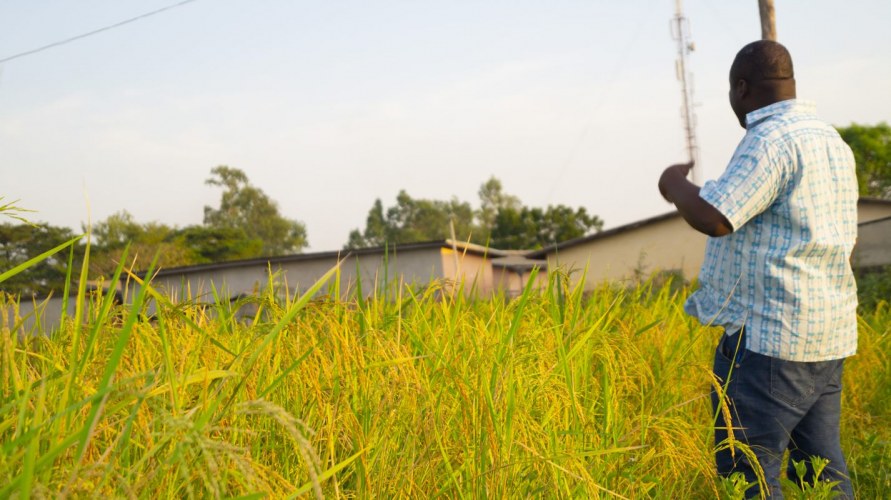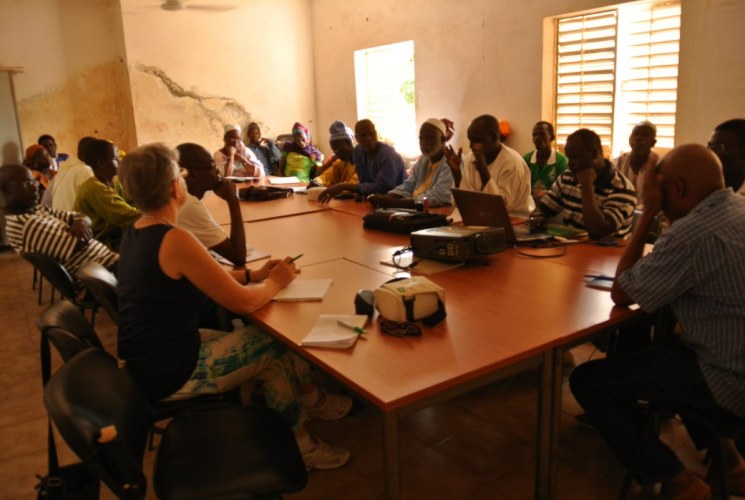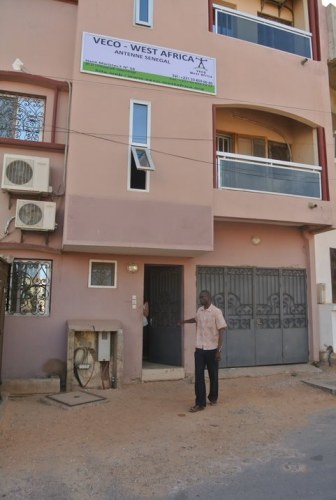Digital solutions for efficient management of rice commercialisation in Senegal
Digital solutions for efficient management of rice commercialisation in Senegal
Context

To support these tests, FEPROBA did not partner only with Rikolto. For technical support, the federation was also supported by the NaatalMbay/USAID project, the Casamance development pole project, and SODAGRI (Senegalese Agricultural and Industrial Development Company). These partners oversaw technical support for production, among other things. Thanks to that support, FEPROBA's production was sustained during the testing phase. The harvest rose from 15,352 tonnes in 2015 to 20,004 tonnes in 2017.
Together with the NaatalMbay/USAID project and SODAGRI, which also provided support as financial partners, the partnership set up an integrated financing model for consultation and support, and a business model. The latter resulted in the establishment of a commercial relationship between FEPROBA and SODEFITEX (Development and Textile Sector Company) for the supply of paddy (threshed, unmilled rice). This supply is based on a third-party holding system which allows the project repayment of a loan contracted at the CNCAS (Senegal National Bank of Agricultural Credit).
The implementation of this business model has experienced constraints resulting in little or no availability of production data. These difficulties have had major consequences in the management of FEPROBA, including slowness in collecting paddy, poor planning, and non-compliance with deadlines for delivering the product to the customers. This situation does not yet allow FEPROBA to implement a clear strategy for accessing the rice market.
On the other hand, FEPROBA and its members carry out mass production without considering the specifications of market demand in terms of variety and size of rice. Occasionally, the quality of the paddy or white rice production of the farmers does not meet the requirements of traders who want to align with market demand.
Challenges
The challenges for FEPROBA are:
To become proficient in the collective management of rice commercialisation.
To better structure the federation’s offer to be able to negotiate better with customers.
To improve the quality of farmers’ paddy and rice so that it meets the market requirements.
FEPROBA plans to create a digital solution to overcome its constraints and to promote the commercialisation/sale of the production of its members. On the other hand, it plans to have a guaranteed quality process for rice to comply with the market requirements.
Strategy
Support in preparing a digital database for the reliable management of information on production and commercialisation.
Support to operationalise a quality approach within FEPROBA, using the SRP (Sustainable Rice Platform standard) to guarantee the quality of the rice according to consumer requirements.
Support in the search for a working capital loan to purchase paddy from members of FEPROBA unions.
Target Groups
The project will benefit a total of 3,000 FEPROBA farmers, 2 rice fields, 11 hullers (rice husking), 153 parboilers, 25 traders, and 50,000 consumers/year.
Intervention zone
Country: Senegal
Region: SOUTOURE (Kolda region, Department of Vélingara)
Project duration
36 months: 1 October 2019 to 30 September 2022
FEPROBA Federation of Farmers in the Anambé Bassin
FEPROBA brings together 5,449 physical persons belonging to four (04) Hydraulic Unions whose members are 264 Economic Interest Groups (GIE), a union of women parboilers and an Association of Breeders of the Anambé Basin.
Expected Results

FEPROBA will start using an interactive database on agricultural production and product offerings (paddy, white rice, seeds and parboiled rice). Because of that database, it will have a comparative advantage in local markets in terms of statistics on its offer.
FEPROBA will establish formal business relationships with processors and traders targeted by the project.
FEPROBA will improve the volume and quality of its white rice offer on the market, from 2,000 to 5,000 tonnes.
The good practices acquired within the framework of this project are shared with peer organisations and stakeholders at national and regional level.
In practice, this will result in:
5,000 tonnes of rice being commercialised by FEPROBA.
90% of the rice offered on the market conforming to requirements.
The production and commercialisation database being operational.
10 formal contracts being signed and respected between FEPROBA and the processors and traders targeted by the project.
A financing document being prepared and published: the good practices gained within the framework of the project will be shared with peer organisations and stakeholders at national and regional level.
FEPROBA (Federation of farmers in the Anambé Bassin)
Contact person: Mansour BASSOUM Email: feproba.anambe [at] gmail.com, mansbassoum [at] yahoo.fr
